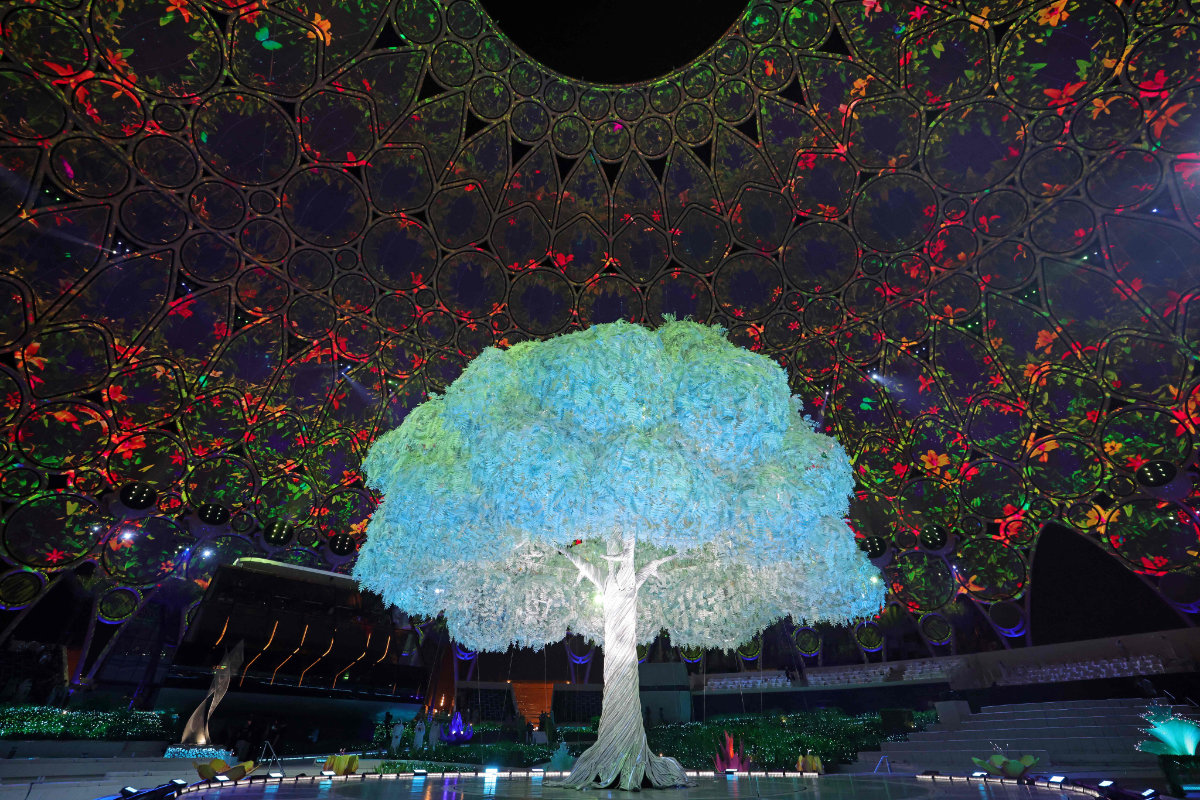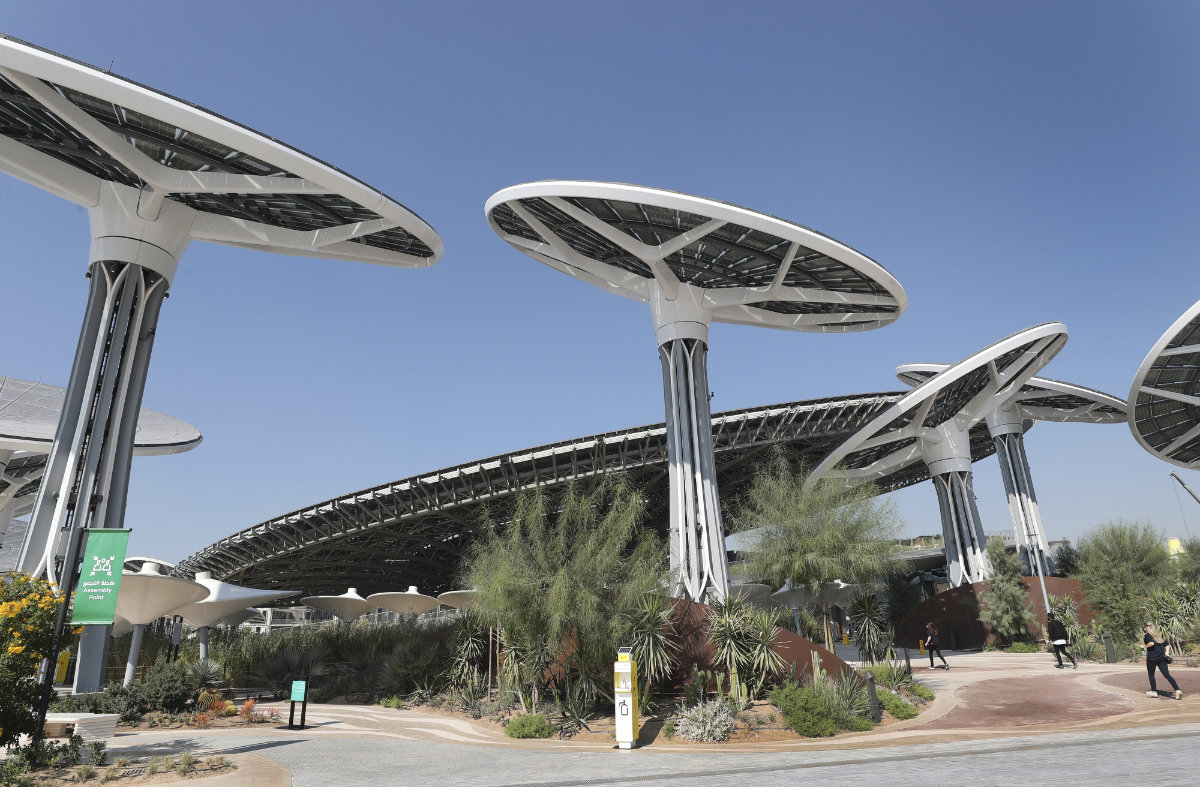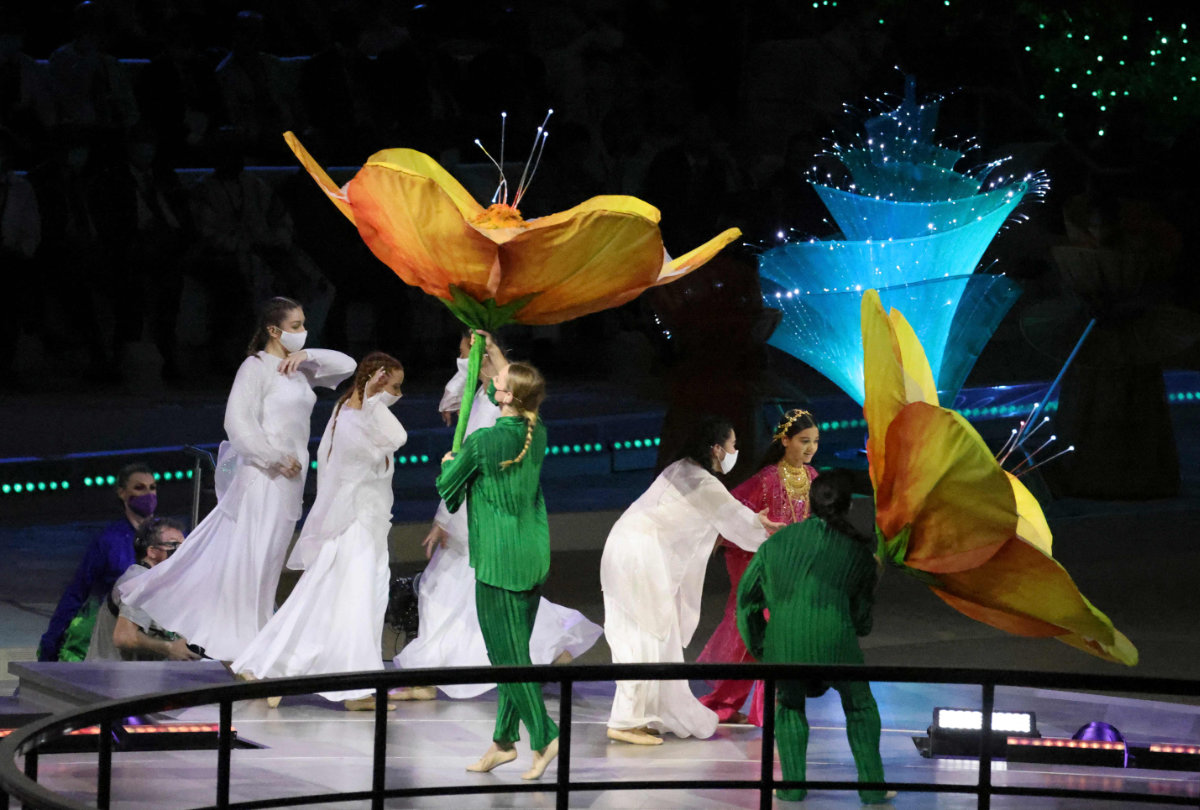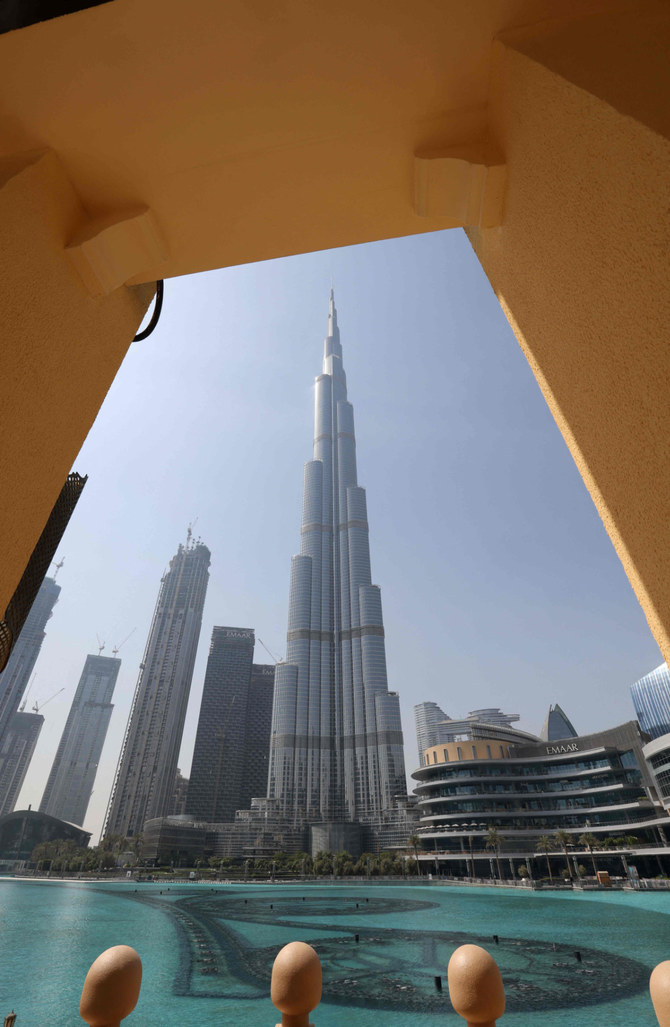DUBAI: A multiple reuse rocket. A desert farm where food grows using salt water. Pop-up theaters. A hyperloop carriage where passengers feel what it is like to travel in a superfast vacuum. These are just some of the experiences visitors can enjoy over the next six months at Expo 2020 Dubai.
Since 2013, when Dubai won over a panel in Paris with its presentation, the expo has easily been the most talked about event in the UAE.
Indeed, Expo 2020 has become a byword for an event to be celebrated not just for the scale and ambition of the projects and pavilions on display, but also because the organizers hope that it will be a game-changer for host Dubai.
The event, which got underway on Thursday with a grand opening ceremony, reportedly showcases over 200 participating entities, including about 192 countries, and features 60 events. Anticipation has grown because the opening has been delayed by a year due to the pandemic.
The fact that the expo is going ahead on such a scale with an expected “25 million visits,” even as travel remains difficult after 18 months of closures and postponements, is probably a feat in itself.
A 4.38-square-km site in Dubai South near the new Al-Maktoum International Airport, the city’s second, has been transformed over the past eight years. The center point is Al-Wasl Plaza, dominated by a massive molded steel dome designed by Adrian Smith and Gordon Gill Architecture of the US.
The permanent structure is 130 meters wide and 67 meters tall. It can screen images both internally and externally and will host the expo’s main opening ceremonies.
Expo 2020 Dubai has an ambitious goal: to create lasting change in the world.

“What is extraordinary is the diverse range of programs Expo 2020 has put together — it is a global celebration evident in the events and festivities centered around 192 participating countries all showcasing their own culture, heritage and innovation,” Sumathi Ramanathan, vice president for marketing strategy and sales, told Arab News.
“More importantly, Expo 2020 reflects the inclusive spirit of the UAE, where we have over 200 nationalities living.”
The World Expo dates back to 1851 when the first event, then called the “Great Exhibition of the Works of Industry of All Nations,” took place in London.
It served as the first of what are now called World Expos, which have been staged every five years at an international city for a period ranging from three to six months. Dubai is the 34th World Expo to take place and follows the one previously held in Milan in 2015. The next is scheduled to take place in 2025 in the Japanese city of Osaka, which also hosted the 1970 expo.

Today, the aim is to find solutions to global issues and challenges. Countries around the world have built pavilions that showcase their latest architectural and technological innovations, in accordance with a particular theme.
For Expo 2020, this is “Connecting Minds, Creating the Future,” with the aim of exploring possibilities in the spheres of opportunity, mobility and sustainability. Technology on show should be unique, pioneering and sustainable.
The event, said Ramanathan, is taking place at “an inflection point in our society,” when the act of uniting and celebrating together has become a rare event.
“People have not been able to come together for nearly two years now,” Ramanathan said. “We are hosting an event at a time when the world is trying to manage the challenges of a global pandemic.

A general view shows the opening ceremony of the Dubai Expo 2020 on Sept. 30, 2021. (Photo by Giuseppe Cacace / AFP)
“People have not been able to meet, interact, experience, engage, or exchange in a physical environment, and that’s what makes this expo incredibly special — the ability to be able to bring together a platform for collaboration and cooperation at a time when the world perhaps needs it the most.”
Despite the challenges, Expo 2020’s ambitious goal of delivering 25 million visits over the course of its six months — it runs until March 31, 2022 — remains.
Every single country from the original 192 participants, said Ramanathan, is coming to Expo 2020. And it is not just the country pavilions that hope to capture the spotlight.
Visitors can view a host of other attractions, such as a collaboration with Cartier to design and host a pavilion dedicated to highlighting the advancement of women in the Middle East.
Commencing as it does just weeks before the UN Climate Change Conference, or COP26, kicks off in Glasgow, UK, Expo 2020 predictably puts a strong emphasis on environmental protection and sustainability.
Terra — The Sustainability Pavilion, designed by UK-based Grimshaw Architects, aims to meet the highest available accreditation for sustainable architecture, the LEED Platinum certification.

A view of Terra, The Sustainability Pavilion at the Dubai World Expo site in Dubai. (AP Photo/Kamran Jebreili)
There is also Alif — The Mobility Pavilion, designed by the award-winning architectural firm Foster + Partners. It features what it says is the world’s largest passenger lift, which can transport over 160 people at a time.
The pavilion is dedicated to discoveries in cutting-edge mobility devices and has a partially open-air 330-meter track for visitors to view new gadgets and technology in motion.
In typical Dubai style, the opening ceremony featured high-tech performances and an impressive line-up of international stars. They included opera singer Andrea Bocelli; classical pianist Lang Lang; international pop stars Ellie Goulding, Andra Day and Angelique Kidjo; and regional stars such as Mohammed Abdo, Ahlam Al-Shamsi and Hussain Al-Jassmi.
Ramanathan said more than 1,000 performers and technical crew worked on the 90-minute extravaganza, which the organizers hope will change the way people around the world view Dubai and the UAE.

Artists perform during the opening ceremony of the Dubai Expo 2020 on Sept. 30, 2021. (Photo by Karim SAHIB / AFP)
She said ticket sales were strong, with an uptick in demand from countries across the world, including the UK, France, Germany, the US, Africa and the Middle East and North Africa region.
All an overseas visitor needs to be eligible to visit the event is a single successful PCR test and a flight ticket.
“The focus is really on what this expo will mean to you depending on what you are interested in,” Ramanathan said, adding that the programming is designed both for the individual and a broader collective, be it business networking, social and environmental change, knowledge and learning, space travel and exploration, or arts and culture.
What is proposed is an exercise in broadening and expanding knowledge about other people and places as well as introducing the power of new philosophies and ideologies, she said.
“What is most interesting is the fusion of the programming that we are offering,” Ramanathan told Arab News. “You can view the traditional, such as the heritage of each country, as well as the most avant-garde technology and innovation.”
_____________________
• Twitter: @rebeccaaproctor

























